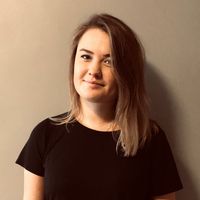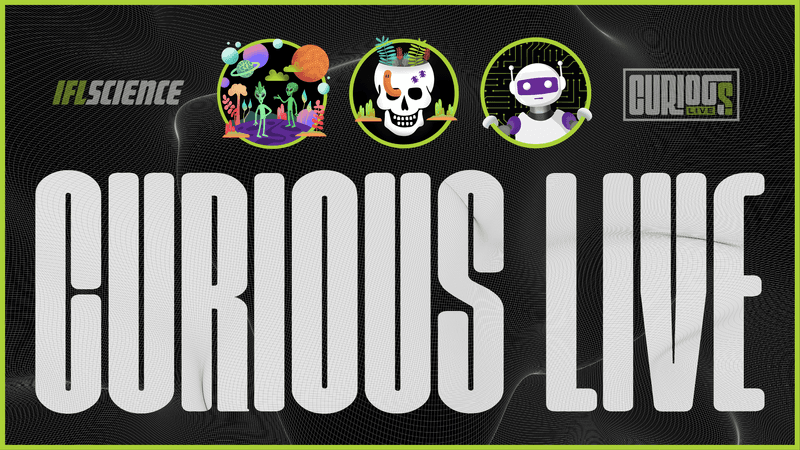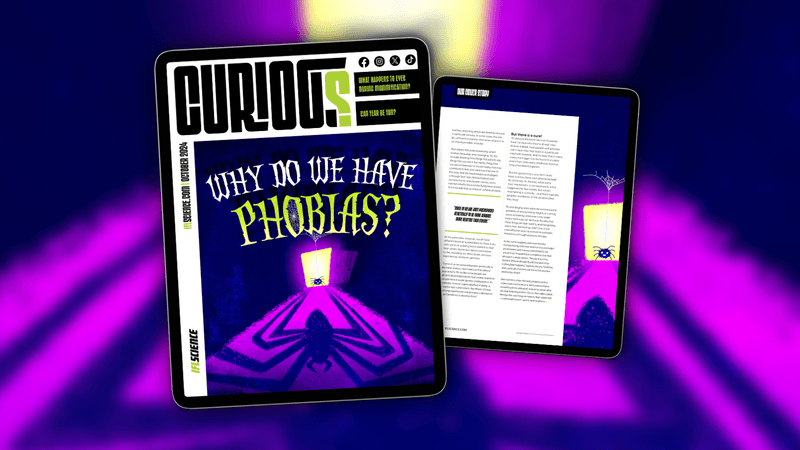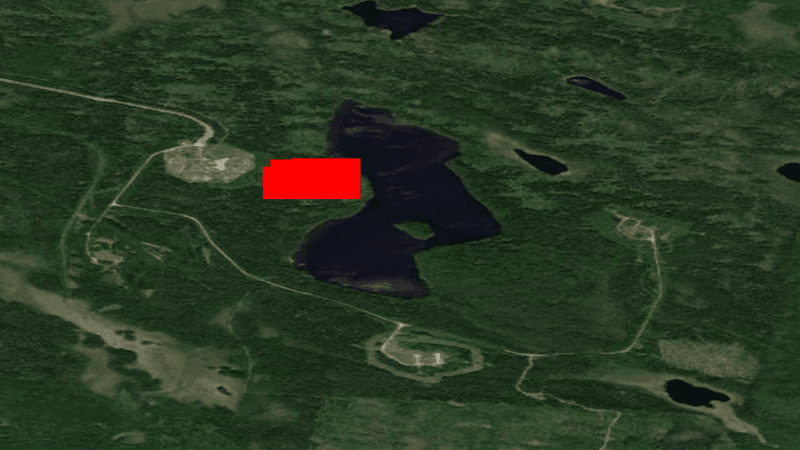Ever wondered what happens after you die? How about what life on other planets might actually look like – if we ever find it? These are the kinds of questions IFLScience asks leading science experts at CURIOUS Live, a virtual event that you can attend wherever in the world you are. Each year, our virtual festival of science is jam-packed with experts sharing their exceptional knowledge on some of the most CURIOUS questions in science. Expect laughs, wows, and the occasional ewww.
In 2023, our first event kicked off with a series on Life, Death, and Creation, and you can catch some of our key speakers below. Like what you see? Why not sign up for our second CURIOUS Live event taking place May 31, 2024.
Head over to the registration page now to secure your spot and get access to watch all of the videos on demand after the event.
CURIOUS Live 2023
Life
Biomimetics with Dr Mostafa Hassanalian
Are dead birds the best spies? Can butterflies help us make better planes? And could a pill bug explore other planets better than an astronaut? These are the sorts of questions Dr Mostafa Hassanalian gets to wake up and answer every day. As Associate Professor in the Department of Engineering for New Mexico Tech, his team have been developing novel technology and robotics inspired by the incredible engineering of living animals. As he told IFLScience, when it comes to borrowing ideas from nature, the possibilities are endless.
Astrobiology with Prof. Aomawa Shields
We'd all love to hear about the existence of alien life, but does anyone know what that might actually look like? Or where we might find it? We speak to Associate Professor Aomawa Shields, an astrobiologist, to find out what it is we're actually looking for in space. And we take a trip down her fascinating career pathway by exploring her new book and what it means to love two subjects at the same time.
Queer Nature with Josh Davis
The fauna and flora of planet Earth are capable of amazing things, especially when it comes to mating and reproduction. From penguins and swans to even more unusual species, queer behaviors and different ways of raising offspring are more prevalent than you might imagine among non-human animals. We spoke with Josh Davis, Digital News Editor at the Natural History Museum London and author of A Little Gay Natural History, to find out more about queerness in the animal kingdom.
Death
Autopsies with Dr Nicole Jackson
Autopsies are something that the living don't typically get to experience, but forensic pathologist Dr Nicole Jackson has unique insight into the process as an established forensic pathologist. We spoke to Jackson about what happens in an autopsy, why they're needed, and what the science can tell us about a person's life, as well as their death.
Decomposition Ecosystem with Dr Devin Finaughty
A remarkable and efficient ecosystem has evolved to get rid of corpses, and a good thing too as having lots of decaying bodies lying around is a nightmare for the spread of disease. Dr Devin Finaughty refers to it as the "decomposition ecosystem", and as he told IFLScience, the many species involved can significantly change the course of a forensic investigation.
The Worst Cures For Deadly Diseases with Dr Lindsey Fitzharris and Adrian Teal
Bloodletting, eating crushed emeralds, and getting rubbed raw with beetroot – these are just some of the peculiar cures humans have come up with for history's deadliest diseases. Science writer Rachael Funnell leads this discussion with medical historian Dr Lindsey Fitzharris and caricaturist Adrian Teal – authors of Plague-Busters! Medicine's Battles With History's Deadliest Diseases – diving into some of the strangest chapters of medical history.
Creation
The Turing Test with Professor Kevin Warwick
What is the Turing Test? Find out as IFLScience's Dr Alfredo Carpineti speaks with Prof. Kevin Warwick, engineer and Professor of Cybernetics at Coventry University, UK. Warwick is no stranger to Turing Tests, having conducted these experiments at the Royal Society. We find out what the Turing Test experiment is, what its limitations are, and what it means when Artificial Intelligence passes.
Settling On Mars With Professor Michelle Hanlon
Many dream to leave Earth behind and start anew in space. The Moon, Mars, the asteroid belt, and even cloud cities over Venus are touted as possible cradles for a new space civilization. But what are the legal realities of such an endeavor? We spoke with space lawyer Professor Michelle Hanlon, co-director of the Air and Space Law Program at the University of Mississippi School of Law, on the current legality of building your very own space community.
CURIOUS Live 2024 Line-up
Join us for IFLScience’s second-ever virtual event as we delve into nuclear war, the connection between mental and physical health, insect detectives, and the search for life elsewhere in the Universe. We’re speaking to experts in each of these fields to find out what science, history, technology, curious case studies, and experiments have taught us about everything from the devastation of atomic bombs to the ongoing search for extraterrestrials.
Sign up to watch and you’ll receive a CURIOUS Live booklet ahead of the event with more background information on these curious topics, experienced experts, and even a quiz you can try out for yourself, test on your class, or take for a whirl in a pub quiz. So, join us on May 31, and you just might learn something you’ll never forget.
Are you CURIOUS?
CURIOUS Live is a virtual event from IFLScience's e-magazine, CURIOUS. Check out our latest issue here.




